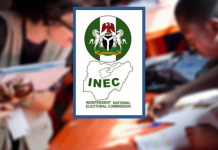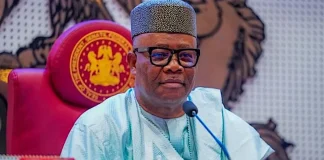🌿 Ruzu Non-Alcoholic Herbal Bitters
Ruzu Non-Alcoholic Herbal Bitters is a natural health supplement specially formulated to:
- ✅ Promote general wellness
- ✅ Detoxify the body
- ✅ Support the treatment of various ailments
Made from a powerful blend of 100% organic and medicinal herbs, Ruzu is completely alcohol-free, making it ideal for:
- 👪 All age groups
- 🌱 Health-conscious individuals
- 🌿 Anyone seeking non-alcoholic herbal remedies
Whether you're looking to boost your vitality, cleanse your system, or support healing the natural way, Ruzu Bitters offers a trusted herbal solution.
The national power infrastructure of Nigeria frequently malfunctions, causing power shortages that impede investment and economic progress in the most populous country in Africa.
Nigeria’s economy is estimated by the World Bank to lose $29 billion annually as a result of the country’s unreliable power supply, which results in nationwide blackouts.
This is the reason behind Nigeria’s grid’s failure.
Read Also: Stanbic IBTC Pension Managers’ N50m FUZE 3.0 Festival to Ignite Lagos on December 21
The situation is mostly caused by Nigeria’s deteriorating electrical infrastructure. Substations and transmission lines, some of which are over 40 years old, are prone to regular breakdowns.
According to the Transmission Company of Nigeria (TCN), which is owned by the government, transmission losses average 7.79 megawatts for every 100 megawatts added to the system.
The grid is vulnerable to tripping when demand varies suddenly due to years of underinvestment, according to energy lawyer Ayodele Oni of Lagos.
Attacks on transmission infrastructure, particularly in northern Nigeria, and vandalism exacerbate this. There have been 108 attacks on TCN’s towers and wires in the past two years.
Nigeria, which has a population of over 200 million, only produces and distributes one-third of its 13,500 megawatt installed production capacity. This is another significant aspect.
And even though Nigeria has the seventh-largest gas reserves in the world, the country generates less than 10% of the energy produced by South Africa, which has a third the population.
Read Also: Tragic Road Accident Claims Life of Niger State Local Government Chairman
Mostly found in the southern part of the country, gas-fired power facilities provide over 75% of Nigeria’s electricity. Hydroelectric plants in the north provide the remaining energy.
Electricity is supplied by power producing companies to the federally regulated national grid, which then distributes it to consumers via 11 regional distribution companies.
Over ten years after Nigeria privatized its electrical industry, the country’s grid has hardly changed.
However, last year the government gave its 36 states the authority to produce and transfer their own electricity. Five states, including Lagos, the country’s economic center, have already started to establish their own independent electricity markets.
The World Bank and the government are also collaborating to construct 1,000 tiny solar grids in order to increase access to electricity in rural areas.
The chief business officer of independent power producer WATT Renewable Corporation, Sherisse Alexander, stated that a more robust strategy is required in Nigeria to integrate decentralized energy sources, such solar power combined with storage, to supplement the national grid.
















